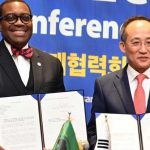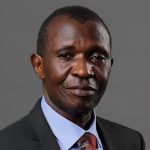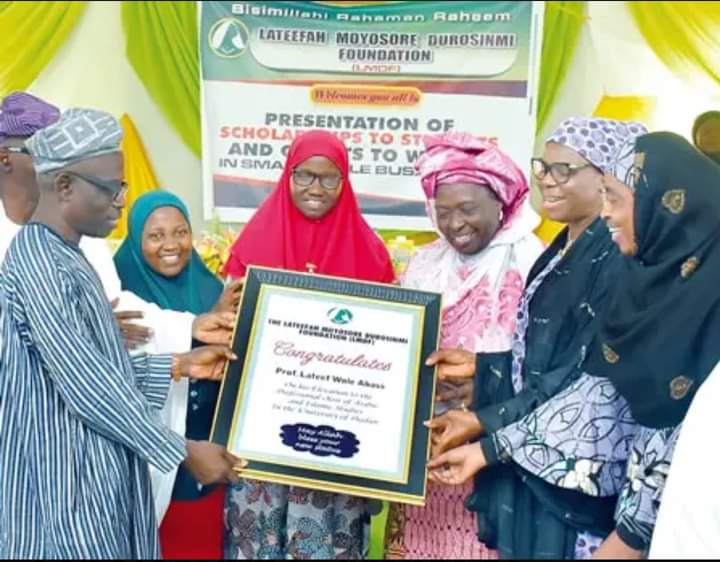Adesina charges Korean investors to see Africa as the leading market frontier with huge untapped potential
The African Development Bank (AfDB) and the Government of Korea have signed a $28.6 million dollars grant to boost Africa’s development agenda.
The AfDB in a statement on its website on Saturday said the funding complemented 600 million dollars co-financing under the Korea-Africa Energy Investment Framework, agreed with the Korean government in 2021.
According to the statement, the framework supports African countries to build human capacity and develop their energy sectors.
The agreements were signed in Busan, during the 7th Korea-Africa Economic Cooperation Ministerial Conference (KOAFEC), which is being co-hosted by the Bank and Korea.
The statement said the new funding would primarily support energy access, agricultural transformation, and knowledge and capacity-building across a number of African countries.
It said the amount would be disbursed to the AfDB Group in three installments of 4.6 million dollars in 2023, and 24 million dollars in 2024 and 2025.
The AfDB Group President, Dr Akinwumi Adesina, and Korea’s Deputy Prime Minister and Minister of Economy and Finance, Kyungho Choo, signed the first agreement for 28.6 million dollars.
Korea’s Deputy Prime Minister and Minister of Economy and Finance described Korea as “a true partner for African countries”.
Choo further said that the government would do its best to contribute to Africa’s sustainable growth and development.
Meanwhile, the AfDB president said Korea’s additional funding was timely, especially as the nation celebrated the 40th anniversary of joining the Bank.
Adesina commended the government for its commitment to a strong partnership between the AfDB and Korea.
“Korea’s relationship with Africa is unique. There is a lot to learn from Korea which moved from a poor country relying on aid, to a donor country within a single generation,” he added.
The statement said the second agreement was signed by AfDB’s Chief Economist and Vice President, Kevin Urama, and Commissioner of Statistics Korea, Hyoung il Lee, on behalf of their institutions.
It said under the agreement with Statistics Korea, the two institutions would collaborate to raise statistical awareness and share new data sources and methods to improve statistical quality, including big data.
It said the agreement document identified areas for possible cooperation, such as AfDB’s Africa Information Highway for evidence-based decision-making.
The Africa Information Highway is a mega-network of live open data platforms electronically linking all African countries and 16 regional organizations.
The AfDB’s figures indicate that the Korea-Africa Economic Cooperation Trust Fund is the largest of the Bank’s active bilateral trust funds in terms of contributions received and portfolio size.
The fund, which had received 108 million dollars in contributions as of Dec. 31, 2022, had financed 203 projects since its inception.
AFRICA IS THE LEADING MARKET FRONTIER WITH HUGE UNTAPPED POTENTIAL
African Development Bank (AfDB) President, Akinwumi Adesina has called on Korean investors to seize untapped investment opportunities in Africa, especially in the energy and agriculture sectors.
Adesina, in a statement on the Bank’s website, said the African continent could not be ignored by investors.
He spoke at a business forum attended by CEOs of Korean corporations, heads of financial institutions, and ministers and business leaders from Africa.
The business forum was held during the 7th Korea-Africa Economic Cooperation Ministerial Conference, held in Korea’s second-largest city, Busan.
Adesina highlighted the potential for Africa to become a leading market frontier, boasting enormous potential in agriculture and renewable energy sources.
The bank chief assured the Korean investors that Africa was not as risky as reported, adding that It was a continent of opportunities, waiting to be tapped.
He cited Moody’s analysis of global infrastructure default rates which showed that Africa ranked better at 5.5 percent, compared with 8.5 percent in Asia and 13per percent in Latin America.
Adesina observed that bilateral trade between Korea and Africa was important and growing, but said its volume needed to be improved.
He said Korea’s trade with Africa in terms of exports and imports stood at only two percent of its total trade with the world.
He said this must change given the huge economic opportunities and investment potential in Africa.
“The size of consumer expenditures is estimated to be 2.5 trillion dollars by 2030.
“The African Continental Free Trade Area (AfCFTA), which is the largest in the world in terms of numbers of countries, is estimated at 3.5 trillion dollars market size.
“With a population of 1.3 billion, of which 600 m are young people, rapid urbanization and rising incomes of the middle class, Africa is the leading emerging market frontier,” he said.
Adesina listed several sectors that offered huge opportunities, including energy and agriculture, which were expected to grow to 1 trillion dollars by 2030.
“This includes the development of special agro-industrial processing zones in which the bank and partners have invested more than 1.5 billion dollars in 11 countries.
“In the energy sector, Africa has enormous renewable energy potential, including 11 TW of solar, which is the highest in the world, but only one percent is utilized.
“With 350 GW of hydro, only seven percent is utilized; 115 GW of wind potential of which only two percent is used; and 15 GW of geothermal power of which only two percent is utilized,” he said.
Adesina invited Korean investors to its 2023 Africa Investment Forum in Marrakech, Morocco, from Nov.10 to Nov.12.
The Africa Investment Forum has attracted 142 billion dollars in investment interest in Africa over the past four years, including in energy, agribusiness, roads and transport, health, and digital technology.
Korea’s 1st Vice President, Minister of Economy and Finance, Byoung Kim, acknowledged that despite global shocks, African countries were experiencing higher growth rates.
Kim shared his strong conviction that there were enormous opportunities for investment in Africa compared to other continents and highlighted the important role of the private sector in harnessing these opportunities.
He recalled that Korea was one of the poorest countries in the world but was able to overcome this largely by focusing on its small businesses and the private sector.
“We hope to share those experiences with our African counterparts.
“We support the private sector to boost investment and provide guarantees tailored to private sector needs.
The Korean government will work with AfDB to identify opportunities and use the KOAFEC Trust Fund to enhance the capacity of the private sector.
The meeting identified the African Continental Free Trade Area as a platform for mutual trade and investment.
The Chairman and President of the Export-Import Bank of Korea, Hee-sung Yoon, said Africa’s population and vast resources offered enormous opportunities for growth.
“The AfCFTA will connect Africa with the rest of the world. It will be an opportunity for Korea to build strategic partnerships,” Yoon said.
Meanwhile, during a subsequent panel session on Just Energy Transition in Africa, the CEO of Neo Themis, Tas Anvaripour encouraged Korean investors to consider on investing instead of only selling equipment.
She assured the gathering that the AfDB was a trusted risk guarantor on the continent.
“In several of our business ventures in some African countries, AfDB was there to support us.
“Its credit guarantee helped us reassure our foreign investors and acted as an honest broker when it mattered most. Institutions like this make investing in Africa easy,” Anvaripour said.










